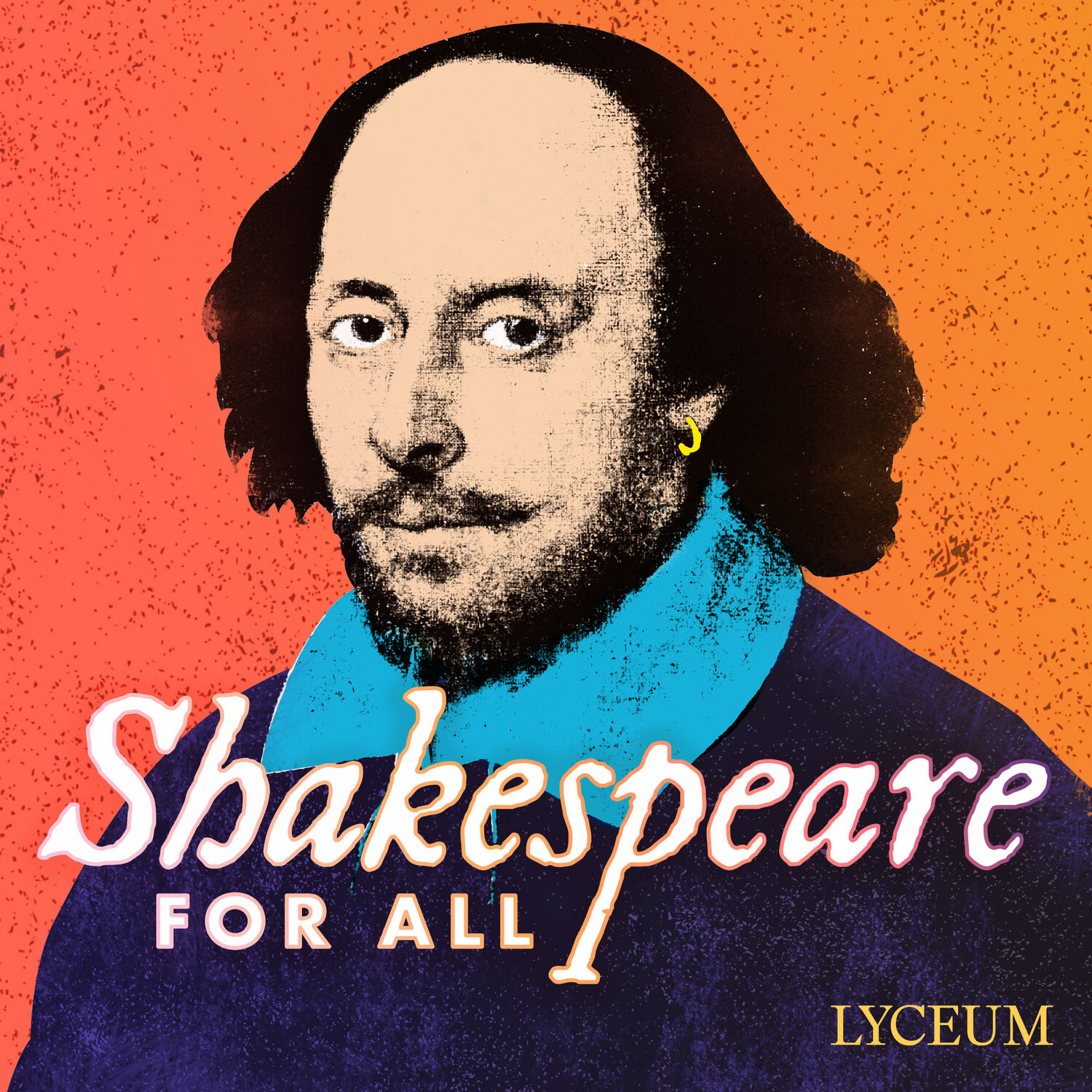The Merry Wives of Windsor
“ALL IS AS SHE WILL”
What You'll Learn
The story of The Merry Wives of Windsor and the historical context behind the play
Why critics have historically dismissed this play and why it’s drawing new attention now
How the play articulates a “proto-feminism” in its unique pair of middle-class female protagonists
Course Outline
Episode 1: Summary of the play with context
Episode 2: Analysis of the play’s character, settings, and engagement with economics, class, and gender
Episode 3: Actors’ recordings of key speeches from the play and discussion of those speeches
Works Consulted for this Course
Cohen, Walter. “Introduction,” The Merry Wives of Windsor. in Shakespeare, William. The Norton Shakespeare. Edited by Stephen Greenblatt, Walter Cohen, Suzanne Gossett, Jean E. Howard, Katharine Eisaman Maus and Gordon McMullan. 3rd ed. New York: W. W. Norton & Company, 2016.
Garber, Marjorie B. Shakespeare After All. New York: Pantheon Books, 2004.
Korda, Natasha. “A Modern Perspective: The Merry Wives of Windsor.” Folger Shakespeare Library. <https://shakespeare.folger.edu/shakespeares-works/the-merry-wives-of-windsor/the-merry-wives-of-windsor-a-modern-perspective/>
Suzuki, Mihoko. “Gender, Class, and the Ideology of Comic Form: Much Ado about Nothing and Twelfth Night” in Callaghan, Dympna, ed. A Feminist Companion to Shakespeare. Malden: Blackwell Publishers, 2000.
Weiser, Brian. “The Shamings of Falstaff” in Smuts, R. Malcolm, ed. The Oxford handbook of the age of Shakespeare. Oxford: Oxford University Press, 2016.
Shakespeare, William. The Merry Wives of Windsor. The Arden Shakespeare. Walton-on-Thames, Surrey: Thomas Nelson and Sons Ltd, 2000.
Shakespeare, William. The Merry Wives of Windsor. The RSC Shakespeare. Basingstoke: Macmillan Publishers Ltd, 2011.
The Merry Wives of Windsor has an unusual status among Shakespeare’s comedies: long dismissed by critics, long beloved by audiences. The only one of Shakespeare’s plays to be set in a recognizably contemporary England, the play tells the story of two witty, confident, women who set a revenge plot in motion when they are propositioned by Sir John Falstaff - the comic star of Shakespeare’s history play Henry IV, now transported to a middle-class milieu in the small town of Windsor near London. In this course, you’ll learn the story of The Merry Wives of Windsor, examine the historical and theoretical contexts of the play that are exciting new critical interest today, and meet two delightfully inspiring heroines as they set out to prove that “wives may be merry and yet honest too.”
In Part 1, you’ll be guided through a detailed account of the story with commentary by Dr. Will Tosh, Head of Research at Shakespeare’s Globe, London. You’ll learn about the intricate construction of the play’s multiple revenge plots and meet the large, diverse cast of Windsor’s inhabitants. This summary is told using the language of the play itself, placing key quotations in context to help you understand where these lines come from and what they mean.
Part 2 takes a closer look at Falstaff, the jealous husband Master Ford, and the wives Mistress Page and Mistress Ford. It also discusses the aspects of the play that are attracting new attention from scholars and audiences today: the play’s realistic English setting, its engagement with the rise of the middle class, and the ‘proto-feminism’ we glimpse in the wives’ independence and economic power and in their determination to protect those things.
Part 3 features close-readings of several significant speeches from Falstaff, Ford, and Mistress Page. We explore how the play creates its comedy, as well as how Shakespeare introduces an undertone of darkness in the sexual jealousy he would go on to explore in later tragedies.
You can hear the third episode of this course for free below. For access to the full course and all of Season Two, subscribe today on Himalaya Learning. Use the promo code BARD for 30 days free.
Speeches and Performers
Mistress Page, Act 1, “What have I ’scaped love letters …” (Amanda Harris)
Master Ford, Act 2, “What a damned epicurean rascal …” (Adam Courting)
Falstaff, Act 3, “Have I lived to be carried in a basket …” (Stephen Leask)
Course Instructor
Dr. Will Tosh
Head of Research at Shakespeare’s Globe, London
Dr. Will Tosh is Head of Research at Shakespeare’s Globe, London. He coordinates the Globe’s on-going Research in Action series of public workshops, and he led the Indoor Performance Practice Project, which examined playing in the candle-lit Sam Wanamaker Playhouse. This project was the basis of his second book, Playing Indoors: Staging Early Modern Drama in the Sam Wanamaker Playhouse (Bloomsbury, 2018). Dr. Tosh also researches the rhetoric and application of Renaissance theories of ‘perfect’ friendship, the subject of his first book, Male Friendship and Testimonies of Love in Shakespeare’s England (Palgrave Macmillan, 2016). He is currently working on Straight Acting: The Many Queer Lives of William Shakespeare, to be published by Sceptre (UK) and Basic (US) in 2023.



